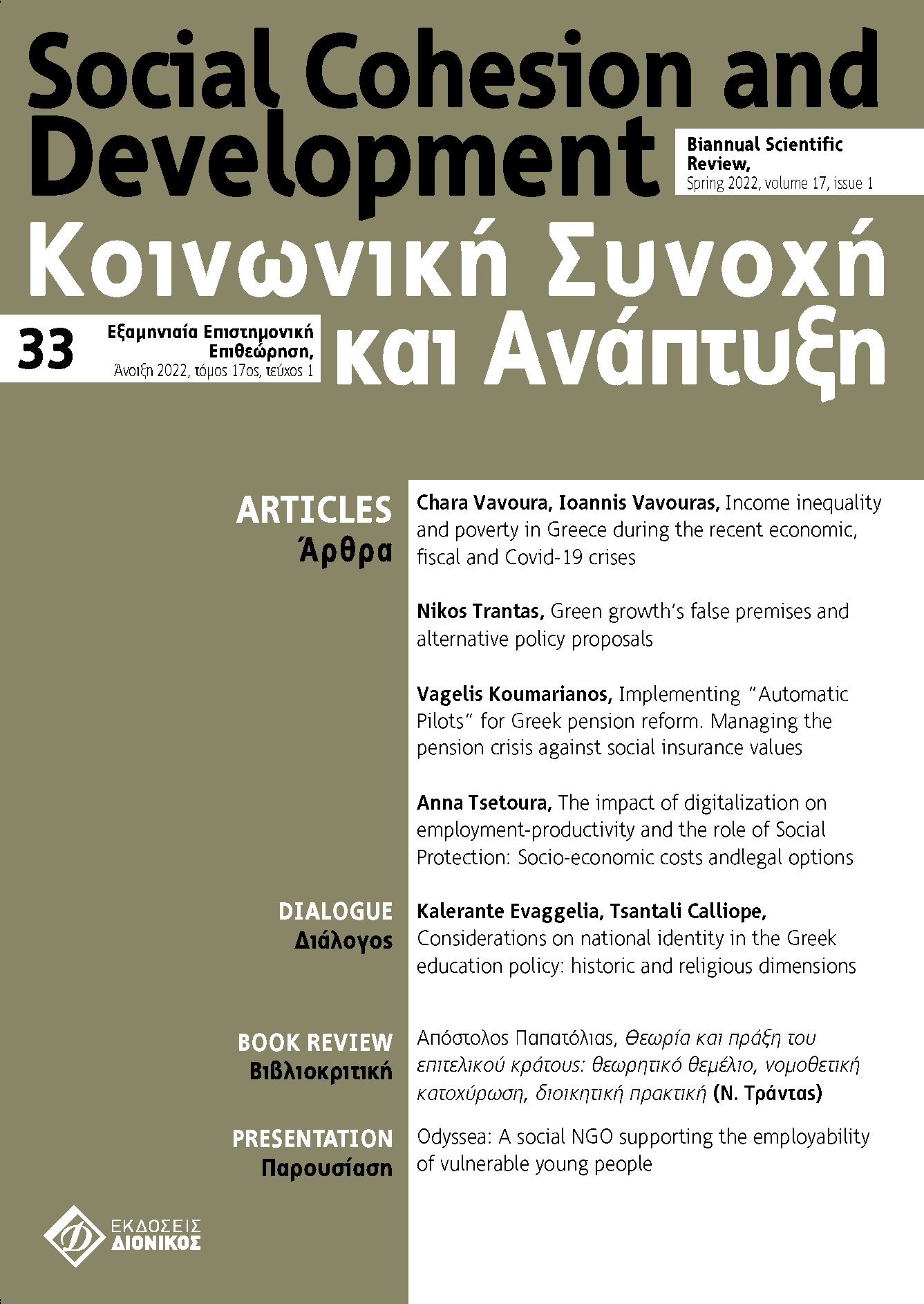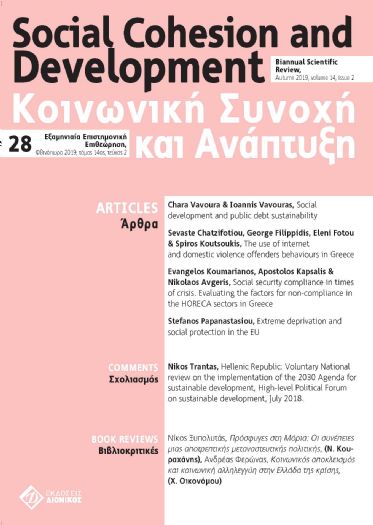Green growth’s false premises and alternative policy proposals

Abstract
Green growth recognizes the pressing environmental
problems that are threatening the planet,
but holds an optimistic view on the relation
between economic growth and environmental
protection. It presumes that the economy can
continue to grow as long as it is geared toward
finding new investment opportunities in innovations
and technological developments that
will lead to the greening of the economy. This
will supposedly lead to a gradual decoupling of
economic growth from resource use and environmental
impact. Scientific evidence seriously
questions the decoupling hypothesis, and theories
critical of growth have suggested alternative
policy proposals for environmental and
social sustainability. These non-mainstream
theories and analytical frameworks seem to be
earning a wider acceptance nowadays
Article Details
- How to Cite
-
Trantas, N. (2022). Green growth’s false premises and alternative policy proposals. Social Cohesion and Development, 17(1), 23–35. https://doi.org/10.12681/scad.32226
- Section
- Articles

This work is licensed under a Creative Commons Attribution-NonCommercial-ShareAlike 4.0 International License.
Authors who publish with this journal agree to the following terms:
- Authors retain copyright and grant the journal right of first publication with the work simultaneously licensed under a Creative Commons Attribution Non-Commercial License that allows others to share the work with an acknowledgement of the work's authorship and initial publication in this journal.
- Authors are able to enter into separate, additional contractual arrangements for the non-exclusive distribution of the journal's published version of the work (e.g. post it to an institutional repository or publish it in a book), with an acknowledgement of its initial publication in this journal.
- Authors are permitted and encouraged to post their work online (preferably in institutional repositories or on their website) prior to and during the submission process, as it can lead to productive exchanges, as well as earlier and greater citation of published work (See The Effect of Open Access).



